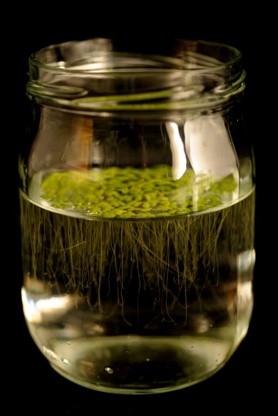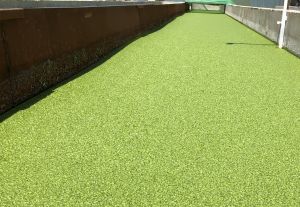LEMNA: Una alternativa ecológica y de bajo impacto ambiental
En los últimos años la producción porcina en España (que supone el 12,7% de la Producción Final Agraria) ha aumentado de forma vertiginosa hasta ocupar el primer puesto en cuanto a número de cabezas de ganado porcino en la UE con casi 30 millones de cerdos. Dicha producción se concentra en ciertas comarcas de Cataluña, Aragón, Segovia o Murcia, donde existe un elevadísimo número de granjas.
Esta elevada producción ganadera lleva consigo la generación de una gran cantidad de purines ricos en nutrientes (nitrógeno y fósforo fundamentalmente), cuya gestión es cada vez más complicada y que llega a generar un impacto ambiental muy significativo en las zonas colindantes a las granjas, especialmente en lo que se refiere a la contaminación de las aguas subterráneas y superficiales por nitratos.
Para prevenir dicha contaminación existe una legislación a nivel europeo, nacional y autonómico cada vez más exigente, que regula cómo y en qué cantidad puede realizarse la aplicación agrícola de los purines en función del tipo y manejo del cultivo. Sin embargo, la producción de purines excede con mucho la capacidad de aplicación en los terrenos agrícolas disponibles en áreas de producción porcina intensiva. Por tanto, la situación actual es que existe un excedente de purines (y por tanto de nutrientes) para los que hay que buscar soluciones sostenibles para evitar la contaminación ambiental.
LIFE LEMNA propone un sistema de recuperación de nutrientes basado en una tecnología de cultivo de Lemna. El primer prototipo a escala semi-industrial construido en España para esta aplicación ha sido diseñado por AINIA con la colaboración de la ingeniería ECOBIOGAS, y está ubicado en las instalaciones de la empresa Porgaporcs, en Vila-sana (Lleida), con una superficie total de 250 m2. La Lemna obtenida constituye una fuente alternativa de biomasa vegetal rica en proteína que puede ser aprovechada en la producción de múltiples aplicaciones.
La lenteja de agua o Lemna es una pequeña planta acuática menor de un cm, flotante, de forma circular y de rápido crecimiento que tiene una gran capacidad para absorber los nutrientes del agua en la que se desarrolla. Como explica Antonio Leyva, investigador del Centro Nacional de Biotecnología (CNB), “esta planta es capaz, además, de producir biomasa con un alto valor nutricional, lo que la convierten en una nueva fuente de proteína de calidad”. En el marco de este proyecto, el CNB ha desarrollado una colección de lenteja de agua con más de 40 variedades autóctonas de la península ibérica, para las que se ha determinado su capacidad de producción de biomasa y de recuperación de nutrientes (nitrógeno y fósforo). Carlos Alonso-Blanco, investigador del CNB co-participe en este proyecto: “la caracterización de más de 40 variedades nos permite seleccionar las más adecuadas para su cultivo en diferentes regiones climáticas.”

Según ha explicado el técnico en medio ambiente de AINIA, Alfredo Rodrigo, en línea con las directrices medioambientales y de aprovechamiento de recursos Europa 2020: “Este sistema es un ejemplo de economía circular en el que los nutrientes contenidos en los purines excedentarios generados por las granjas son recuperados por la Lemna y posteriormente reutilizados, bien en la propia granja o en las zonas cercanas a ella”. En el marco del proyecto se evaluará su uso para biofertilizantes/bioestimulantes o como sustituto en piensos de otras proteínas vegetales como la soja o la colza.
Los resultados de los ensayos de cultivo realizados hasta el momento en el marco del proyecto LIFE LEMNA, muestran que con una adecuada selección de las variedades de Lemna utilizadas y con un manejo del cultivo se pueden alcanzar rendimientos de producción de biomasa superiores a 17t de materia seca/ha·año, con una riqueza en proteína de la biomasa obtenida del 35-40%. Estos datos equivalen a una productividad de 7t de proteína/ha·año proteína, valor que es entre 6 y 7 veces más elevado que la productividad de la soja y casi 3 veces superior a la de la alfalfa.
En el proyecto LEMNA está coordinado por AINIA, y participan como socios el Centro Nacional de Biotecnología (CNB), perteneciente al Consejo Superior de Investigaciones Científicas (CSIC), la empresa Porgaporcs y la empresa ECOBIOGAS.
En el proyecto LEMNA está cofinanciado por el programa europeo LIFE.






